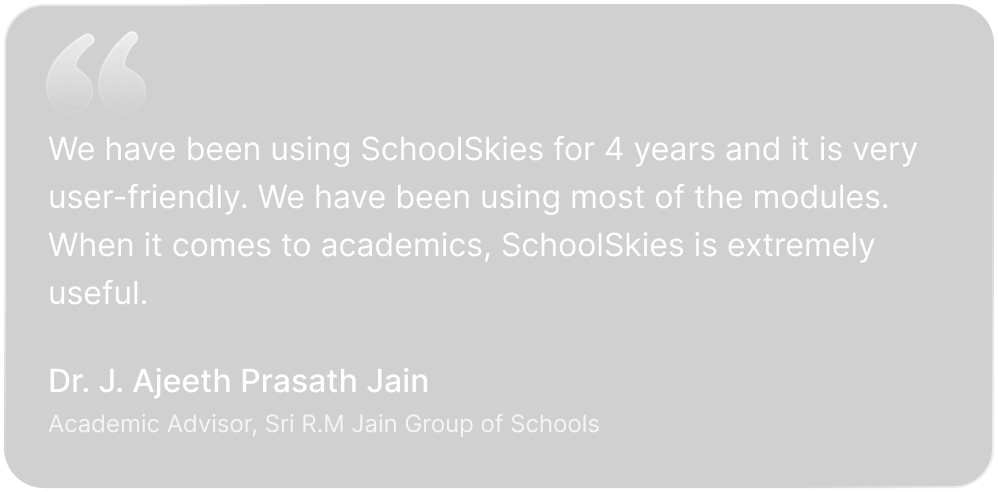Start Your Free
Trial Now


In the dynamic landscape of education, the adoption of School Enterprise Resource Planning (ERP) platforms has become instrumental in streamlining administrative processes, enhancing communication, and fostering overall efficiency. However, with a plethora of options available, choosing the right school ERP platform can be a daunting task. To aid educational institutions in this crucial decision-making process, let's explore key considerations to ensure the selection of a platform that aligns with the unique needs and goals of the school.
Before diving into the sea of available options, it's crucial to clearly define the objectives and specific requirements of your school. Identify the pain points in your current administrative processes and envision how an ERP system can address those challenges. This will serve as a roadmap for selecting a platform that meets your school's unique needs.
A user-friendly interface is essential for ensuring that all stakeholders, including teachers, administrators, parents, and students, can easily navigate and utilize the ERP system. A platform with an intuitive design reduces training time and encourages widespread adoption.
Evaluate the features offered by different ERP platforms and ensure they align with the requirements of your school. Common features include attendance tracking, grade management, communication tools, timetable scheduling, and student information management. Choose a platform that provides a comprehensive suite of features to cover all aspects of school administration.
As your school grows, so should your ERP system. Opt for a platform that is scalable and can adapt to the evolving needs of your institution. Scalability ensures that the system remains effective and relevant as your school expands, preventing the need for a disruptive transition to a new platform in the future.
Seamless integration with existing systems and third-party applications is crucial for optimizing workflow efficiency. The chosen ERP platform should be able to integrate with other tools commonly used in education, such as learning management systems (LMS) and finance software, to create a cohesive and interconnected digital ecosystem.
The security of sensitive information is non-negotiable. Ensure that the ERP platform adheres to robust data security standards and follows best practices for data privacy. Look for features like encryption, secure authentication, and regular security updates to safeguard the confidentiality of student and staff information.
While cost is a significant factor, it's essential to consider the long-term return on investment. A platform that provides a high ROI by improving efficiency and reducing administrative overhead is a valuable investment.
Choosing the right school ERP platform is a pivotal decision that can significantly impact the efficiency and effectiveness of your school's administrative processes. By carefully considering your school's objectives, user needs, security requirements, and scalability, you can navigate the selection process with confidence. Keep in mind that the right ERP platform is not just a software solution but a strategic tool that empowers your school to embrace the future of education administration.